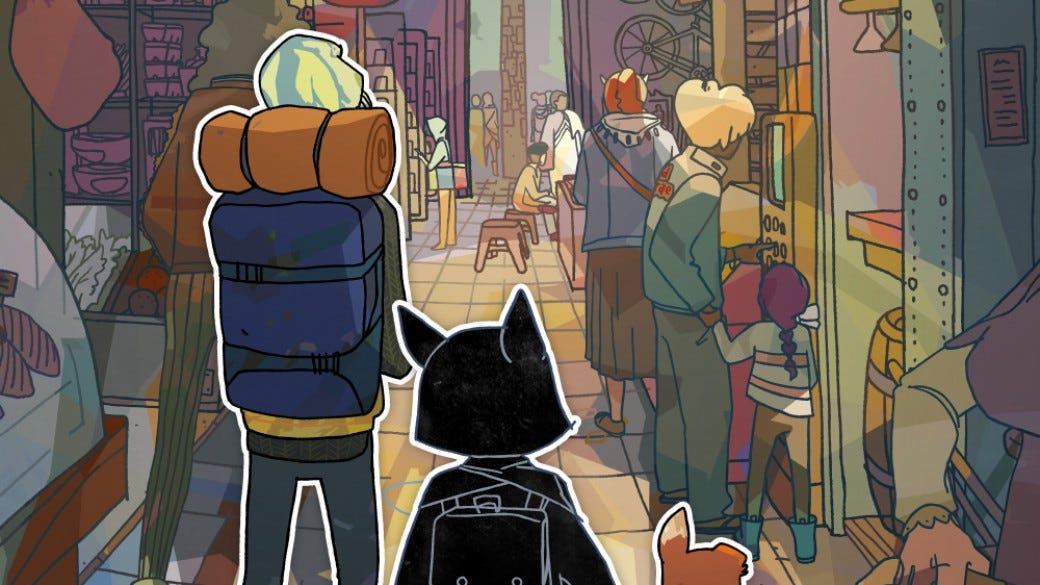Signs of the Sojourner is a small game — four hours, conveying a single summer's travels — that feels nevertheless like a turning point for the medium. In it, you build a 10-card deck, each with a symbol on either side; conversations play out by taking turns matching symbols to create connections, convey ideas. After each conversation, you swap a card from your deck with one from your conversant's. That's it, mostly. And yet the thematic variety and narrative depth this small team wrings from the premise is astonishing, conveying, mechanically, sensations never summoned in a game before: Like the way more worldly people have richer demands on your deck, but greater rewards; the way sticking to the preordained route, endlessly matching circles, is a feedback loop with rewards of its own; the delight of an unexpected connection in a far-flung corner; the slow way friendships change over time, despite best intentions. (Also: the best "pet the dog" mechanic ever conceived.) After one run, you're left with your own rewards, like: If videogame dialogue could be this purposeful, why ever go back? And if such sensations as these could be felt in a game, what new possibility spaces remain unmapped?
Discussion about this post
No posts




